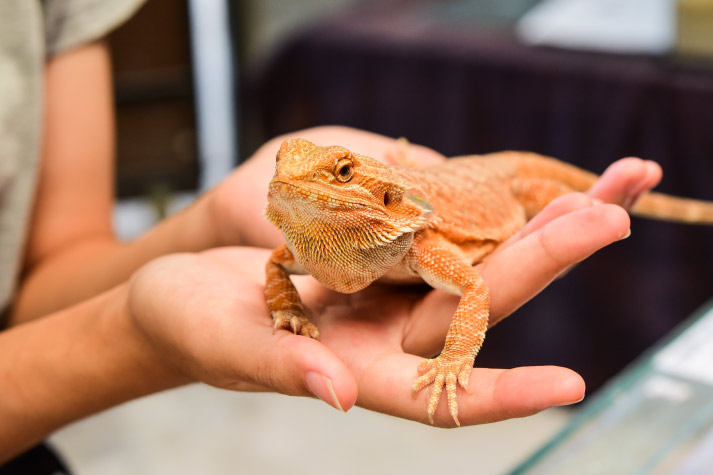
15 Jun
5 Things to Consider Before Buying an Exotic Pet
When people think of pets, they usually picture house pets like dogs, cats, or perhaps a hamster or guinea pig. But some adventurous individuals choose unique or rare animals to keep as companions. While it might seem exciting to have an exotic pet, there are key things to consider before bringing one home. Exotic pet ownership comes with its own challenges, rules, and regulations.
Since the attention and care required by exotic animals is different to regular household pets, you should consider a few factors and check if your new exotic friend is a suitable companion, or if they will be happier in the world than indoors.
How to Decide If an Exotic Animal Is Right for You
Will This Exotic Pet Fit Your Lifestyle?
Unlike traditional pets like dogs and cats, exotic animals may require special care and have unique needs. For an exotic pet, such knowledge may be known or unknown, which means you need to consider a few things before welcoming one home:
- Will this pet grow too big for your space?
- Does it have a long or short lifespan?
- What’s its personality like? Is it friendly, shy, or aggressive?
- Is it safe to have other pets or people?
- Do you have children? Are they mature enough to handle this pet safely?
- Can you find a pet sitter who knows how to care for it?
- What exercise or daily routines does this pet need?
- Can you afford the specific food it requires?
- Is there a vet nearby who treats exotic animals?
- Will it cost a lot to care for this pet over its lifetime?
- If you can no longer care for it, would someone else be able to?
Are Exotic Pets Allowed in Your Country?
Different countries have different laws about exotic pets, and even some fish or bird species are protected and may not be allowed as pets. Before committing, research if owning this pet is legal where you live. For instance, some crossbreeds of dogs or cats are considered “exotic” and may have legal restrictions, like a Bengal Cat for example. Make sure you’re familiar with any laws around owning or importing exotic animals.
Exotic Pets Need Special Transportation
It should be no surprise that transporting an exotic pet requires a certain level of expertise. After all, moving an exotic pet isn’t like moving an everyday house pet. Exotic animals often need expert handling during transportation, and some require specific permits. Laws vary by country, and some animals might be classified as “exotic” because they’re rare or could pose a risk during transit. This is why it’s crucial to work with a professional animal transporter who understands the legal and practical requirements to keep these animals safe.
Then there’s the matter of the animal being transported. Some exotic animals are deemed to be so due to their rarity; others are deemed exotic due to their wild or unpredictable nature. The latter can be dangerous for animal transporters who aren’t accustomed to shipping such animals. Only seasoned exotic animal transporters are qualified to transport such creatures safely, which is something to consider if you plan on importing or exporting an exotic pet.
Exotic Animals Often Come from Illegal Markets
Sadly, many exotic pets are illegally taken from their natural habitats. Wildlife laws aim to protect endangered animals, but there’s still a black market for exotic animals like monkeys, turtles, and certain birds. This illegal trade often means these animals suffer from poor conditions and have a high risk of spreading diseases. For this reason, owning such a pet can contribute to harmful practices.
Do You Really Need an Exotic Pet?
Consider why you’re interested in an exotic pet. While they may seem unique, they often require a lot of maintenance and can be challenging to care for in the long term. Traditional pets like dogs and cats are domesticated, meaning they’re adapted to life with people and can show love and affection. Exotic animals, however, remain closer to their wild instincts and are less likely to connect with humans in the same way.
In the end, exotic pets may look impressive, but they’re often difficult to care for and come with legal and ethical concerns. From special laws to health risks and unique care needs, they aren’t ideal for most people. Consider a pet that fits your lifestyle and offers companionship, not just one that seems rare or flashy. Animals aren’t status symbols—they deserve a home where they can thrive.






AUTHOR’S BIO
Carry My Pet
Passionate pet enthusiasts and globetrotters, dedicated to easing furry friends' journeys worldwide. Penning tales of compassion at CarryMyPet, where every relocation is a tail-wagging adventure.